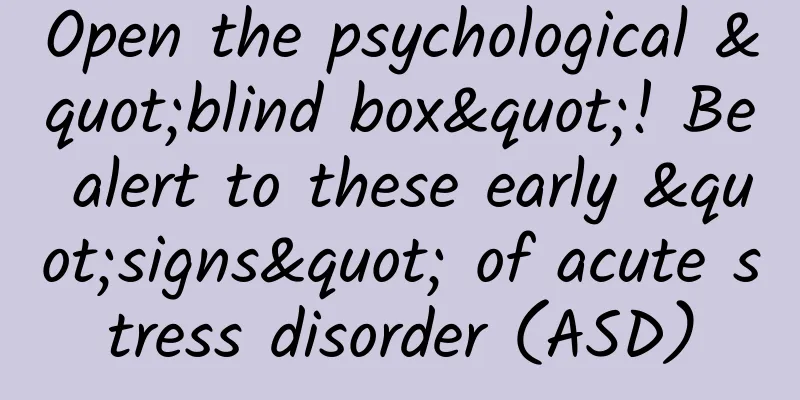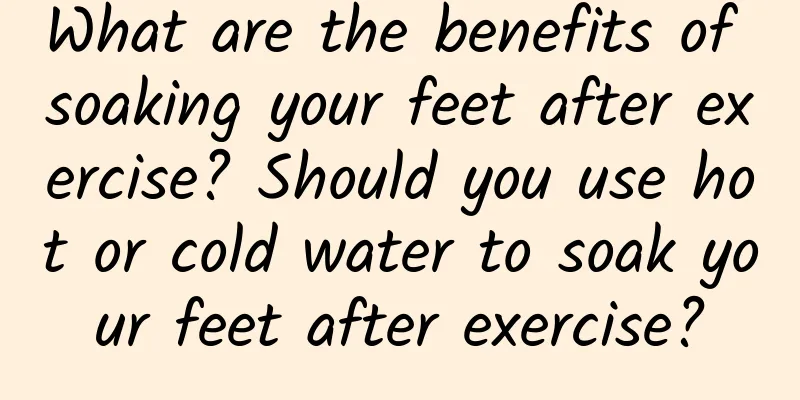Open the psychological "blind box"! Be alert to these early "signs" of acute stress disorder (ASD)

|
Acute stress disorder (ASD) refers to a short-term psychological abnormality that occurs within minutes or hours after suffering from acute and severe psychosocial stressors. The clinical symptoms are often manifested as a "dazed" state at first, that is, limited consciousness, misorientation, narrow attention, accompanied by purposeless movements, etc. They may then show signs of avoiding or withdrawing from the surrounding environment, manifested by being silent, motionless, refusing to eat or drink, and having no response to external stimuli; they may also show signs of agitation, excessive activity, and impulsive destructive behavior. At the same time, patients may show typical autonomic nervous system symptoms of anxiety, such as sweating, blushing, and increased heart rate. Patients sometimes cannot recall the traumatic event. The acute stress response generally lasts for several hours or days, with a good prognosis and complete symptom relief. Experts from the Second People's Hospital of Hunan Province (Hunan Brain Hospital) remind us that to identify whether we or others may have acute stress disorder (ASD), we can pay attention to the following key points: 1. Exposure to traumatic events Whether the individual has directly or indirectly experienced a traumatic event, such as a death threat, serious injury, or sexual assault. 2. When symptoms appear Symptoms of ASD typically begin within 3 days to 1 month after the traumatic event. 3. Specific symptoms Includes recurring, uncontrollable, intrusive, and distressing memories of the event, recurring distressing dreams about the event, a feeling that the traumatic event is replaying (e.g., in flashbacks), and intense psychological or physical distress when reminded of the event. 4. Emotional and cognitive responses People may experience a persistent inability to experience positive emotions (such as feelings of happiness, contentment, or love), an altered sense of reality (such as being in a daze or as if time has slowed down), loss of memory for important parts of the traumatic event, and efforts to avoid disturbing memories, thoughts, or feelings associated with the event. 5. Physiological and behavioral responses People with ASD may experience disturbed sleep, irritability or angry outbursts, excessive focus on the possibility of danger (hypervigilance), difficulty concentrating, and exaggerated reactions to loud noises, sudden movements, or other stimuli (startle reactions). 6. Impaired social function Symptoms must cause significant distress or significantly interfere with the individual's daily functioning. 7. Exclude other situations Doctors also check whether symptoms may be caused by medication use or other disorders to make sure the diagnosis of ASD is accurate. Hunan Medical Chat Special Author: Liu Zhiying, Hunan Second People's Hospital (Hunan Brain Hospital) Follow @湖南医聊 to get more health science information! (Edited by YT) |
<<: In order to grow taller, they actually "broke" their legs?
Recommend
What are the solutions for women's dysmenorrhea
Women are prone to dysmenorrhea during their mens...
When to check early pregnancy
Pregnancy and childbirth are very important thing...
Buttock pain in late pregnancy
We all know that when a pregnant woman reaches th...
What are the symptoms of uterine myopathy?
Many people must be very unfamiliar with the dise...
Woman has symptoms of bad cervical spine
There are many people suffering from cervical spo...
How is melasma formed? How to remove melasma
Chloasma, commonly known as freckles, is a pigmen...
Uterine repair after abortion
After an abortion, a woman's uterus will actu...
What is the situation of less and dark menstrual flow after miscarriage?
Due to various reasons, more women are having abo...
What is the brown sticky discharge?
Experts emphasize that one must not take chances ...
What causes breast pain during menstruation?
Many women attach great importance to their physi...
Can pregnant women drink saffron water?
It is very good for girls who often suffer from m...
The olfactory paradox: The story of a stranded whale
Leviathan Press: In "One Thousand and One Ni...
How to take care of your skin during travel?
Traveling has become a new fashion and hot topic,...
What are some tips for pregnant women to treat athlete's foot?
Many female friends will notice certain changes i...







![[The First Brain-Computer Interface and Rehabilitation Science Competition] Brain-Computer Interaction - Real "Human-Computer Dialogue" (Graphic and Text Category) Third Prize](/upload/images/67f126b4a6442.webp)

